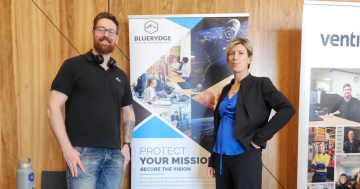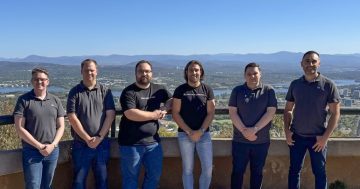Meghan M. Biro* discusses how leaders can support their employees to upskill with Co-founder and CEO of Empath, Carlos Gutierrez.
 In today’s world of work agility matters and how we enable our own employees to meet our company goals, is vital.
In today’s world of work agility matters and how we enable our own employees to meet our company goals, is vital.
This isn’t possible without a mechanism to understand the held skill & experiences among our own contributors.
In today’s world, seeking talent externally could be considered an outdated and ineffective response to fulfilling talent needs.
The future of work demands that we explore the weaknesses of this strategy.
On the latest Worktrends podcast, I spoke with Carlos Gutierrez, the co-founder, and CEO of Empath, a SaaS technology platform that uses machine learning to transform the way talent is managed and grown internally.
Previously, he served as chair of Albright Stonebridge Group, a global strategic advisory firm.
Carlos spent nearly 30 years with Kellogg, a global manufacturer of well-known food brands.
Let’s open the conversation about the relationship between agility and skills.
First, there is no doubt that organizations need to embrace agility.
However, if a foundational strategy isn’t in place to respond to rapidly changing internal and external environments, achieving agility will remain elusive.
Agility requires a different mindset
“…The thing about agility is that it’s sort of the opposite of the way companies used to run where you develop a plan and you stick to the plan.
“Agile, an agile methodology or agility, is just the opposite.
“You don’t stick to a plan because you know that your environment will be changing very rapidly.
“And what we can do is change departments, change teams, move around, redeploy people and do that very quickly if you have a skills inventory of all your employees.
“So you can do an agile methodology even quicker than it would if you weren’t able to measure skills.”
Powering agility & upskilling
As the saying goes: Information is power.
To manage & deploy the skills to carry out vital initiatives, organizations must know what skills are actually present and those that are missing:
“…So you need to have the information of the employee skills, proficiency levels, and the skills required to go to other jobs.
“And that’s where you get the gap that you need to fill, the upskilling gap.
“And we do that for every employee in a company.”
A solution: An AI-powered internal skill library
Capturing existing skills within your organization is critical.
People evolve much more quickly than their resumes — and so do the roles they hold.
A more sensitive, dynamic mechanism to capture this is required.
Applying cutting-edge technology simply makes sense.
Moreover, companies that fail to take people skills into consideration when projecting future business needs will inevitably fall short.
Companies can create more accurate plans if they understand the skills they seek could already exist internally.
“…What we tell companies and what companies have found who use skills, who have accurate skills inventories, that the person they’re looking for is already inside the company.
“They just don’t know it because they don’t have visibility into, say, 20,000 people.”
The wave of the future: Machine learning to establish skills
Resumes simply aren’t enough to help organizations understand skills and become agile.
The language is much more complex than we realize.
We need to be less subjective and listen with more powerful tools.
“…I hear sometimes about, well, are you going to have machine learning and AI determine the skills of a person or infer?
“I can assure you that we will be more accurate in companies in this business than the subjectivity of human nature.”
“So our algorithm, our machine learning algorithm captures signals…The machine can infer what the skills are.
“It’s actually a very complex technology, but you will never notice it.
“It’s like picking up a phone and calling, you don’t know what’s behind the call.”
*Meghan M.Biro founded TalentCulture in 2008 to lead a conversation about the future of work with her peers in HR and leadership.
This article first appeared at talentculture.com.











